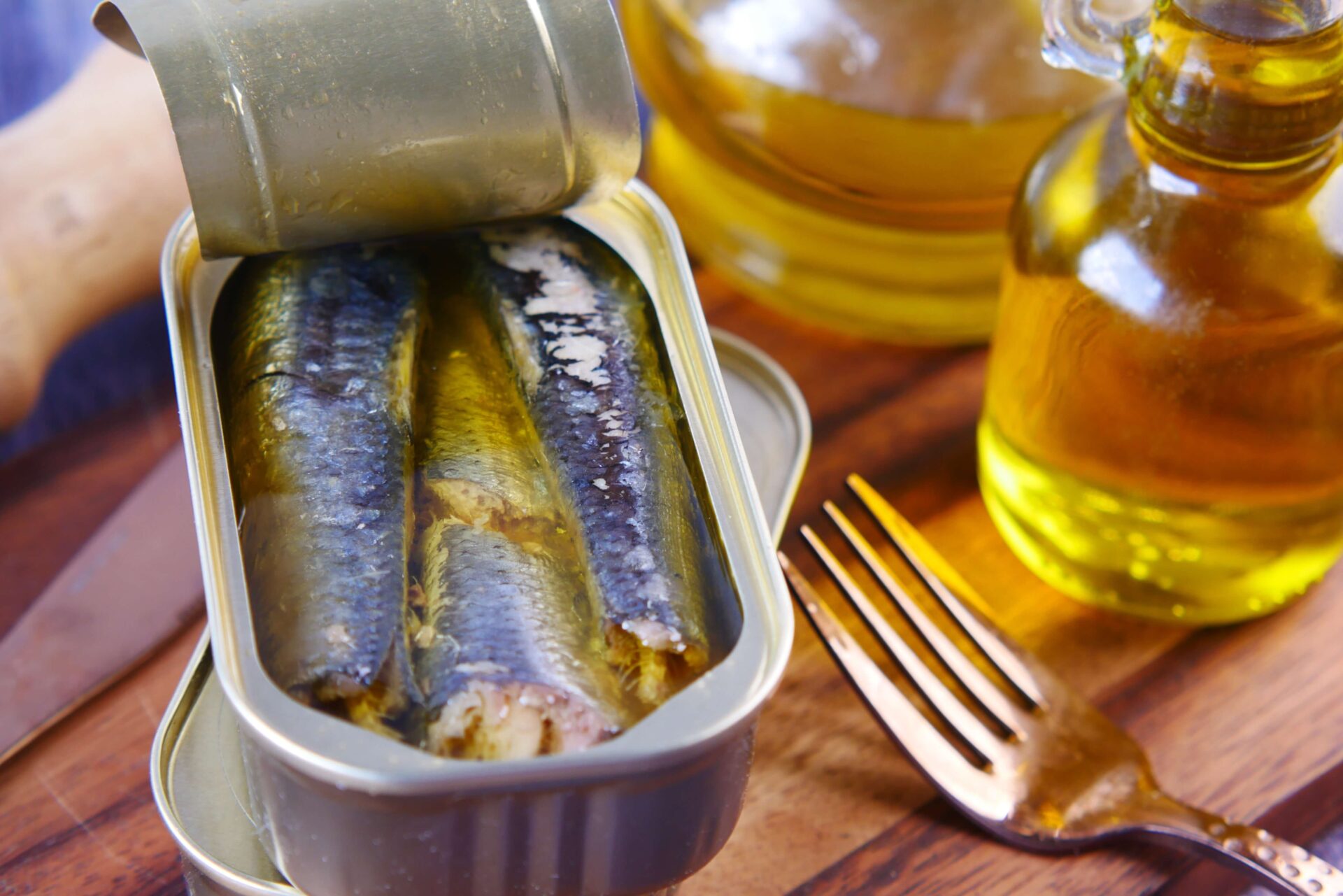
Eat More Sardines!
Today’s superfood is a spotlight on sardines. This nutrient-dense, small oily fish, is typically canned or smoked and found on the shelves of your local grocery store. Sardines are rich in essential vitamins and minerals such as calcium, zinc, iron, omega-3 fatty acids and vitamin D. All of which have a myriad of cardiovascular and neurological benefits. When looking to incorporate a fish low in mercury and high in protein, sardines can be an excellent place to start. Although they have a stronger more “fishy” flavor profile, the advantages are well worth adjusting to the taste. Not only are these fish game changers when it comes to the prevention of diseases, but they are also a satiating snack that keeps you full while helping you hit your protein goal.
One of the more well-known benefits has to do with its high amount of omega-3 – 3 fatty acids. Omega 3 helps to improve heart health, strengthen our bones, reduce inflammation, help to facilitate a healthy pregnancy and can even help improve symptoms of anxiety and depression. According to the National Library of Medicine, “Omega-3 polyunsaturated fatty acids (n-3 PUFA) play a significant role in the prevention and management of cardiometabolic diseases associated with a mild chronic pro-inflammatory background, including type 2 diabetes, hypertension, hypertriglyceridemia, and fatty liver disease.” Since sardines are so high in functional nutrients, it is the recommended source of omega as opposed to supplementation. Supplements are great in a pinch, but it is always optimal to get these nutrients from a whole-foods diet!
In addition to being high in omegas, sardines are also high in calcium! According to the National Library of Medicine, the calcium content in most packages of sardines is equivalent to 400ml of milk. This is more than most types of fish humans regularly consume. For example, a package of sardines has around 382 mg of calcium as compared to fish like canned tuna with 13mg or salmon with 9mg. They can also be favorable for those who are lactose intolerant or have a hard time getting their calcium in. A diet proficient in calcium is incredibly important for bone health. “Calcium is indispensable for bone health, and approximately 99% of the calcium bodily content is contained in bone tissue, with the remaining 1% stored in other tissues and with varied but similarly important biochemical roles (National Library of Medicine).” Getting a wide variety of vitamins and minerals in your diet is critical to developing and maintaining a healthy lifestyle. That said, aim to incorporate superfoods like sardines in your diet to live a long and healthy life. Your body will thank you.
Struggling to get enough iron in your diet? Sardines can help with that too! As compared to meat sources, sardines contain around 2.9mg of iron per serving, which is fairly substantial. That said, sardine consumption can help in cases of iron deficiency, preventing you from feeling faint and extremely fatigued. A quick snack with great benefits? You can’t ask for anything better!
We know sardines do not get the best reputation for being the most appealing types of fish you can eat, but they are one of the most nutrient-dense foods out there! So, we encourage you to expand your palette and start including foods that haven’t been on your radar before reading this blog! It is important to note that you should speak with your doctor about integrating new foods into your diet, but we urge you to give sardines a try. We think you’ll like the results.
References:
Hjalmarsdottir, F. (2023, January 17). 17 science-based benefits of omega-3 fatty acids. Healthline. https://www.healthline.com/nutrition/17-health-benefits-of-omega-3#TOC_TITLE_HDR_7
Santos, H. O., May, T. L., & Bueno, A. A. (2023, April 14). Eating more sardines instead of fish oil supplementation: Beyond omega-3 polyunsaturated fatty acids, a matrix of nutrients with cardiovascular benefits. Frontiers in nutrition. https://www.ncbi.nlm.nih.gov/pmc/articles/PMC10153001/


